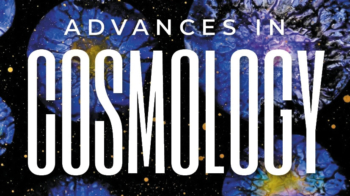In the mid-1930s, physics was heavily attacked by the most famous Italian philosopher of the time, who called physicists “vile mechanicians”. It was on this occasion that Enrico Fermi told his young fellows: “Don’t worry. Physics is the queen of all sciences.”
We physicists cannot remain silent and keep ignoring the cultural debate on “Intelligent Design”. Other scientists discuss what their observations allow them to say about Intelligent Design: practically all fields of science are present in the debate. Physics, however, is absent. But it is the only science that studies the fundamental logic of nature. Therefore we are the most involved in the hypothesis of Intelligent Design. The purpose of this note is to review, briefly, the scientific basis for this hypothesis, which I describe more fully elsewhere (Zichichi 2008).
Mankind has always been concerned with this extremely important problem but it is only in the past four centuries that, following Galileo Galilei, an impressive series of experimental discoveries has allowed us to reach the conclusion that a fundamental logic of nature exists. The point I would like to make clear is that all other fields of scientific research are not in a position to study this logic for the very simple reason that, no matter what the field may be, the root of our existence has to be investigated in order to overcome the basic difficulty in dealing with the foundations of this logic.
For example, whether we study the evolution of inert matter or the evolution of matter endowed with the property of life, at the very end we discover that all forms of matter – with or without life – have to obey the same fundamental logic. No matter what form of evolution we attempt to study, the key issue is that if a fundamental logic exists, then nature – including its evolution – has to obey this logic.
For the universe to be as it is now, three basic transitions are needed and each must obey the logic of nature.
The field of research where this logic is studied is physics. For the universe to be as it is now, endowed with the properties of life and reason, three basic transitions are needed and each must obey the logic of nature.
The first of these transitions is the Big Bang, which describes how the universe – consisting of inert matter – came into being from a vacuum and subsequently evolved. I call this Big Bang 1. There are many problems to be studied for Big Bang 1 to be rigorously described on the basis of first-level “Galilean Science”; that is, through experimentally reproducible results that can be described with the rigour of mathematical formalism. Although Big Bang 1 and the subsequent cosmic evolution are a one-off event, every step must obey the fundamental logic discovered with first-level Galilean science; this logic is based on three fundamental forces (electroweak, strong and gravitational) and three families of elementary particles.
The second transition in the universe, Big Bang 2, deals with the problem of how to describe the transition from inert matter to living matter. So far no one has been able to solve this problem but once it is solved, the evolution of all different forms of living matter must be studied and referred to the fundamental logic of nature before the evolution of the living matter can be classified as Galilean science.
Then, Big Bang 3 – the transition from living matter without reason to living matter endowed with reason – must be described. It is thanks to Big Bang 3 that we are able to discuss Big Bang 2 and Big Bang 1. The fact that out of the innumerable number of different forms of living matter, there is only one endowed with the property called reason, needs to be examined in detail.
Once all of these problems have been solved we will be able to say that we have a scientific description of the theory of evolution. The present status of our culture takes for granted that the Darwinistic approach to the theory of evolution is scientifically founded. As I have outlined above, this is not the case.
The basic message coming from science is that a fundamental logic exists that governs all forms of inert and living matter. If a fundamental logic exists then the author of this logic must exist too. The atheistic culture claims that the author is not there, but no one is able to prove, using either theoretical logic (mathematics) or experimental logic (science), that this is the case. Those who claim that this logic does not exist are in conflict with science and its most advanced achievements.
Four centuries ago Galilei discovered why it is not enough to be “smart” in order to understand the logic of nature. He pointed out that experiments need to be implemented if we want to know the correct answers to our questions. To express a question in a rigorous way – as is the case, for example, for a supersymmetric world, using a relativistic quantum string-like theory – is not enough; experimental proof of its existence is needed. The reason is that the fellow who created the world is smarter than all of us, no one excluded.
This is at present all that physics can say on the author of Intelligent Design. The hypothesis of which, to the extent that it is based on the argument that this fundamental logic exists, proposes nothing other than that there is an intelligence that designed such logic. And this is in perfect agreement with the most advanced frontier of our field of activity which was defined by Fermi as “the queen of all sciences”.
• A Zichichi 2008 Rigorous Logic in the Theory of Evolution, presented at the Plenary Session on “Scientific Insights into the Evolution of the Universe and of Life”. Proceedings of the Pontifical Academy of Sciences (Vatican, 31 October – 4 November 2008), pp101-178.





